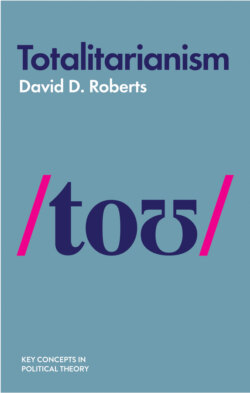Читать книгу Totalitarianism - David D. Roberts - Страница 9
Notes
Оглавление1 Tzvetan Todorov, Hope and Memory (London: Atlantic, 2003), 2. 2 Karl W. Deutsch, “Cracks in the Monolith: Possibilities and Patterns of Disintegration in Totalitarian Systems,” in Carl J. Friedrich (ed.), Totalitarianism (Cambridge: Harvard University Press, 1954), 309. 3 Mao Zedong’s name was rendered in English as Mao Tse-tung before the reform of the transliteration of the Chinese language in 1982, so he is referred to by that name in older works. 4 Evelyn Cameron: Pictures from a Worthy Life (Montana PBS; Missoula: University of Montana, 2005). 5 Anna Burns, Milkman: A Novel (Minneapolis: Graywolf Press, 2018), 25, 120, 172. 6 Masha Gessen, The Future is History: How Totalitarianism Reclaimed Russia (New York: Riverhead, 2017). 7 Michael Geyer and Sheila Fitzpatrick (eds), Beyond Totalitarianism: Stalinism and Nazism Compared (Cambridge: Cambridge University Press, 2009). 8 Michael David-Fox, Introduction to Michael David-Fox, Peter Holquist, and Alexander M. Martin (eds), Fascination and Enmity: Russia and Germany as Entangled Histories, 1914–1945 (Pittsburgh: University of Pittsburgh Press, 2012), 3. 9 Richard Overy, The Dictators: Hitler’s Germany and Stalin’s Russia (New York: Norton, 2004), xxvii, 73. 10Irving Howe, Politics and the Novel (New York: Meridian, 1987 [1967]), 249–50.
